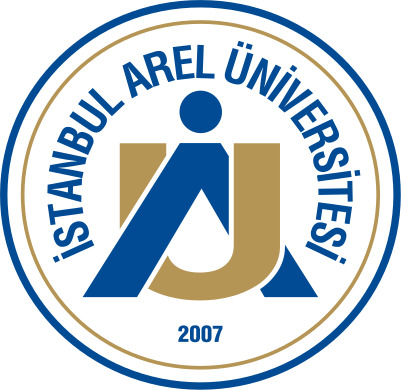Health Institutions Administration
Overview
<!-- wp:paragraph --> <p><strong>Program Description</strong><br><strong>Health Institutions Administration at Istanbul Arel University: Leading the Future of Healthcare Management</strong></p> <!-- /wp:paragraph --> <!-- wp:paragraph --> <p>The Health Institutions Administration program at Istanbul Arel University is designed to equip students with the essential knowledge and skills to effectively manage and lead healthcare organizations in today’s rapidly evolving healthcare sector. This interdisciplinary program combines business administration principles with healthcare management strategies, preparing graduates to oversee operations in hospitals, clinics, nursing homes, and other health-related organizations. Through a curriculum that integrates healthcare systems, policy, economics, leadership, and technology, students will gain a thorough understanding of the administrative and operational aspects of healthcare, empowering them to ensure quality patient care, efficient healthcare delivery, and organizational success.</p> <!-- /wp:paragraph --> <!-- wp:paragraph --> <p><strong>Program Mission and Vision</strong><br>The mission of the Health Institutions Administration program at Istanbul Arel University is to develop leaders who can manage and optimize the operations of health institutions, ensuring that they provide high-quality, patient-centered care. The program aims to produce graduates who possess a strong understanding of healthcare systems, financial management, human resources, and policy implementation. The vision is to create a generation of healthcare administrators who are equipped to face the challenges of a constantly evolving healthcare environment and drive innovations that improve patient outcomes and operational efficiency.</p> <!-- /wp:paragraph --> <!-- wp:paragraph --> <p><strong>Curriculum Structure</strong><br>The Health Institutions Administration program provides students with a comprehensive education that covers both theoretical and practical aspects of healthcare management. Key areas of the curriculum include:</p> <!-- /wp:paragraph --> <!-- wp:paragraph --> <p><strong>Introduction to Healthcare Systems</strong>: This foundational course introduces students to the structure and functioning of healthcare systems. Topics include healthcare delivery models, the role of healthcare providers, public health systems, and the evolution of healthcare policies at national and global levels.</p> <!-- /wp:paragraph --> <!-- wp:paragraph --> <p><strong>Healthcare Management and Organization</strong>: Students explore the principles of healthcare management, including organizational structures, leadership styles, and the role of administrators in decision-making. The course covers both clinical and non-clinical departments and focuses on ensuring efficient healthcare delivery.</p> <!-- /wp:paragraph --> <!-- wp:paragraph --> <p><strong>Health Economics and Finance</strong>: This course focuses on the financial aspects of healthcare institutions, including budgeting, cost control, financial reporting, and reimbursement systems. Students will learn about healthcare funding, insurance models, and financial sustainability in health institutions.</p> <!-- /wp:paragraph --> <!-- wp:paragraph --> <p><strong>Health Policy and Ethics</strong>: Students examine the impact of policy on healthcare delivery and management. Topics include healthcare reform, laws and regulations, ethical dilemmas in healthcare, and the legal responsibilities of healthcare administrators.</p> <!-- /wp:paragraph --> <!-- wp:paragraph --> <p><strong>Human Resource Management in Healthcare</strong>: This course provides students with the skills needed to manage healthcare teams effectively. Topics include recruitment, training, staff retention, performance evaluation, and conflict resolution, as well as understanding the specific dynamics of healthcare personnel management.</p> <!-- /wp:paragraph --> <!-- wp:paragraph --> <p><strong>Quality Management in Healthcare</strong>: Students learn about quality assurance and quality improvement initiatives in healthcare settings. The course covers accreditation standards, performance measurement, patient safety protocols, and techniques to improve service delivery and healthcare outcomes.</p> <!-- /wp:paragraph --> <!-- wp:paragraph --> <p><strong>Healthcare Marketing and Public Relations</strong>: This course covers strategies for promoting healthcare services and organizations. Students learn about brand management, public relations, patient engagement, digital marketing, and the use of media in healthcare.</p> <!-- /wp:paragraph --> <!-- wp:paragraph --> <p><strong>Healthcare IT and Technology</strong>: In this course, students gain an understanding of the technological tools used in modern healthcare management. Topics include health information systems, electronic health records (EHRs), telemedicine, and data analytics to improve decision-making and operational efficiency.</p> <!-- /wp:paragraph --> <!-- wp:paragraph --> <p><strong>Leadership and Strategic Management in Healthcare</strong>: Students are introduced to leadership theories and strategic planning techniques. This course focuses on building strong leadership skills, including effective communication, crisis management, and decision-making in high-pressure healthcare environments.</p> <!-- /wp:paragraph --> <!-- wp:paragraph --> <p><strong>Healthcare Law and Regulatory Compliance</strong>: This course explores the legal and regulatory framework that governs healthcare institutions. Students learn about patient rights, privacy laws (such as HIPAA), healthcare licensing, and compliance with national and international regulations.</p> <!-- /wp:paragraph --> <!-- wp:paragraph --> <p><strong>Project Management in Healthcare</strong>: Students learn how to plan, execute, and manage healthcare-related projects, such as new service implementations or facility expansions. The course includes aspects of project budgeting, risk management, scheduling, and stakeholder communication.</p> <!-- /wp:paragraph --> <!-- wp:paragraph --> <p><strong>Healthcare Facility Management</strong>: This course focuses on the management of physical spaces within healthcare institutions. Topics include facility design, maintenance, health and safety protocols, environmental sustainability, and the integration of modern technologies in healthcare environments.</p> <!-- /wp:paragraph --> <!-- wp:paragraph --> <p><strong>Capstone Project and Internship</strong>: In the final phase of the program, students undertake a capstone project where they design and implement a healthcare management initiative or improvement strategy. Students also gain hands-on experience through internships in hospitals, clinics, or healthcare organizations, applying their knowledge in real-world settings.</p> <!-- /wp:paragraph --> <!-- wp:paragraph --> <p><strong>State-of-the-Art Facilities and Learning Resources</strong><br>Istanbul Arel University provides students with access to modern classrooms, computer labs, and simulation facilities that are equipped with the latest healthcare management software and tools. The university also partners with local healthcare organizations, providing students with opportunities to engage in real-world case studies and internships.</p> <!-- /wp:paragraph --> <!-- wp:paragraph --> <p><strong>Emphasis on Practical Learning and Leadership Development</strong><br>The Health Institutions Administration program places a strong emphasis on practical learning, ensuring students are well-prepared for leadership roles in healthcare management. Students engage in real-world projects, case studies, and internships that provide hands-on experience in managing healthcare organizations and understanding the challenges of the healthcare industry.</p> <!-- /wp:paragraph --> <!-- wp:paragraph --> <p><strong>Career Opportunities</strong><br>Graduates of the Health Institutions Administration program are prepared for a wide range of leadership and administrative roles within the healthcare sector. Career opportunities include positions such as healthcare administrators, hospital managers, operations directors, policy analysts, health insurance managers, human resources managers, and consultants in healthcare organizations. Graduates can work in hospitals, private clinics, public health organizations, long-term care facilities, and healthcare consulting firms.</p> <!-- /wp:paragraph --> <!-- wp:paragraph --> <p><strong>Shaping the Future of Healthcare Leadership</strong><br>Istanbul Arel University’s Health Institutions Administration program is dedicated to developing future leaders who will improve the quality of healthcare delivery and drive innovation within the industry. By providing a well-rounded education in healthcare management, policy, economics, and technology, the program prepares graduates to manage healthcare institutions with efficiency, compassion, and a commitment to excellence.</p> <!-- /wp:paragraph -->
Program Description
The Health Institutions Administration program at İstanbul Arel University offers a comprehensive curriculum designed to prepare students for successful careers in this dynamic field. The program combines theoretical knowledge with practical skills, ensuring graduates are ready for the challenges of the industry.
The program is taught by experienced faculty members who are leaders in their respective fields, providing students with insights into current industry practices and future trends.
Curriculum Highlights
- Advanced Research Methods: Learn cutting-edge research techniques and methodologies.
- Industry Analysis: Explore current industry trends and develop analytical skills.
- Leadership and Management: Develop essential leadership skills for managing teams and projects.
- Innovation and Entrepreneurship: Cultivate creative thinking and entrepreneurial mindset.
- Digital Transformation: Understand how technology is reshaping industries and businesses.
- Sustainable Development: Explore environmentally sustainable practices and their implementation.
- Global Markets: Study international market dynamics and global business operations.
- Technology Integration: Learn to leverage technology for improved business outcomes.
Requirements:
- Bachelor's degree (for Master's programs) or equivalent qualifications.
- Proven English language proficiency (IELTS 6.5+ or equivalent).
- Complete transcripts from previous education.
- A compelling letter of motivation explaining your interest in the program.
- Two letters of recommendation from academic or professional references.
- Valid passport with appropriate visa status or eligibility.
Benefits:
- World-class faculty with extensive industry experience.
- Modern campus facilities and cutting-edge learning environments.
- Strong industry partnerships providing networking opportunities.
- Internship opportunities with leading companies in the field.
- Comprehensive career services including job placement assistance.
- Access to a global alumni network for lifelong professional connections.
Begin your educational journey today.
Apply now and take the first step towards your future.






